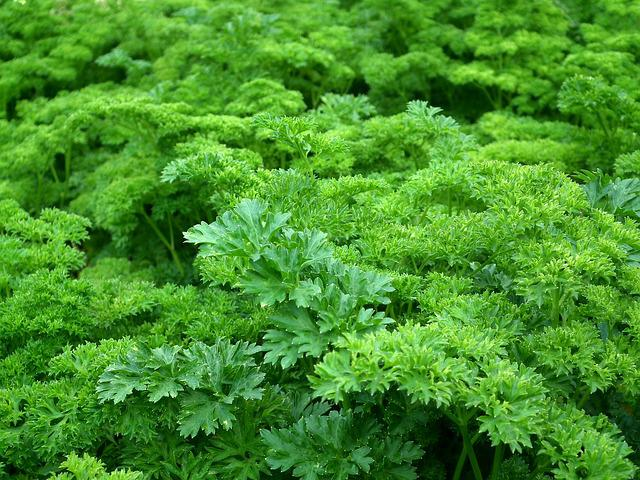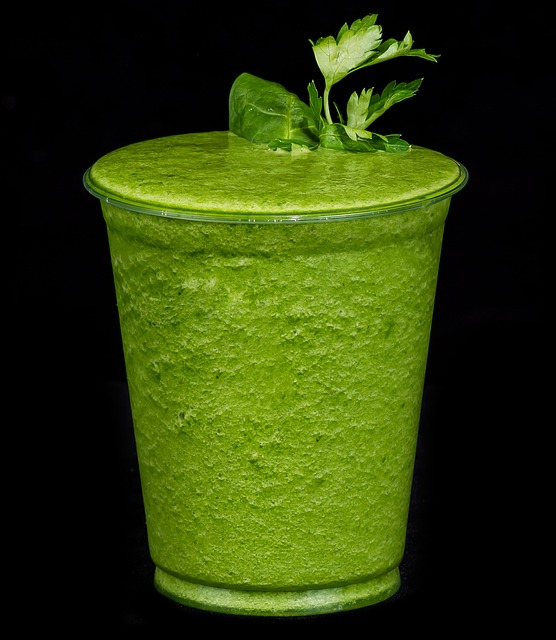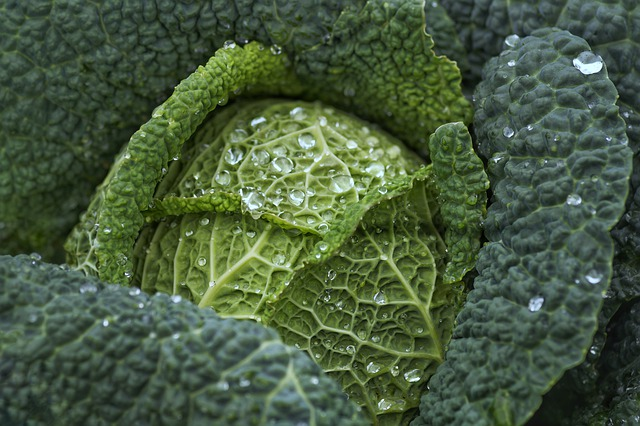Can bearded dragons eat parsley? Do you have the same question in mind? You’re not alone! Many people are curious about what bearded dragons can and can’t eat. In this blog post, we will answer whether or not bearded dragons can eat parsley and provide some information about the nutritional value of parsley. Stay tuned for more details!
What Is Parsley?

Parsley is a type of herb often used as a garnish or decoration on food. It can be found fresh, dried, or ground into a powder. Parsley has a slightly peppery taste and is high in vitamins A and C.
Parsley belongs to the Apiaceae family, including carrots, celery, and fennel. Parsley is a biennial plant that takes two years to complete its life cycle. In the first year of the parsley plant’s life cycle grows leaves. Once the leaves have reached full size, the plant will produce flowers and seeds in the second year. After the seeds have been made, the plant will die.
Parsley is a popular herb to grow in gardens and grows wild in some areas.
What Are The Nutritional Benefits Of Parsley?
Parsley is a good source of vitamins A and C and folic acid. Vitamin A is essential for vision and immune function, while vitamin C is an antioxidant that can help to protect cells from damage. Folic acid is necessary for pregnant women as it can help to prevent specific congenital disabilities.
Parsley also contains some minerals, including iron and potassium. Iron is vital for making hemoglobin, which carries oxygen in the blood. Potassium is an electrolyte that helps to regulate fluid balance in the body.
Can Bearded Dragons Eat Parsley?
Now that we know about parsley, you’re probably wondering if bearded dragons can eat it and should we feed parsley or not. The answer is yes! Bearded dragons can safely eat parsley.
In a nutshell, parsley is acceptable for bearded dragons to consume, and it is even advantageous to them, but you should bear in mind that only parsley can be eaten in moderation. Parsley must never be the primary source of plant food for bearded dragon’s diet since it contains oxalates, and too many of these are harmful to a dragon’s health.
Like all members of the carrot family, Parsley is high in water and low in sugar. Bearded dragons don’t require sugar-rich diets because they expose them to obesity, fatty liver disease, diarrhea, kidney problems, and other illnesses. Parsley stands out as an excellent source of hydration for bearded dragons due to its high water content.
How Often Can Bearded Dragons Eat Parsley?
Parsley can be fed to bearded dragons as often as every day or two. When feeding parsley to your bearded dragon, wash the leaves thoroughly to remove any dirt or pesticides. Depending on your dragon’s preference, you can chop the parsley into small pieces or leave the leaves whole.
As with all foods, it is essential to monitor your dragon’s intake of parsley and make sure that they are not overeating. An easy way is to offer parsley as part of a mixed salad, alongside other safe vegetables like collard greens, kale, and turnip greens. This will ensure that your dragon is getting various nutrients and not filling up on one food.
6 Health Benefits Of Parsley?

Parsley is a good source of vitamins A and C and folic acid. The health benefits of parsley include:
Vitamins A and C
These are antioxidants that can help to protect cells from damage. Vitamin A is also essential for vision and immune function. Parsley is also rich in Vitamin C. Vitamin C is vital for the synthesis of collagen, absorption of iron, wound healing, and the maintenance of cartilage, bones, and teeth.
Calcium
Parsley is a good source of calcium. Calcium is vital for developing and maintaining bones and teeth, blood clotting, nerve function, and muscle contraction.
Minerals
Parsley also contains some minerals, including iron and potassium. Iron is vital for making hemoglobin, which carries oxygen in the blood. Potassium is an electrolyte that helps to regulate fluid balance in the body.
Fiber
Parsley is a good source of fiber. Fiber can help regulate the digestive system, lower cholesterol levels, and control blood sugar levels.
Water
Parsley is high in water content, making it an excellent source of hydration for bearded dragons.
Oxalates
Parsley is a good source of oxalates. Oxalates are compounds that can bind to minerals and prevent their absorption. They can also help to reduce the risk of kidney stones.
5 Alternatives To Parsley For Bearded Dragons

If you’re looking for alternatives to parsley for your bearded dragon, plenty of other vegetables can offer similar benefits. Some good options include:
Kale
Kale is a dark, leafy green vegetable high in vitamins A, C, and K. It also contains calcium, iron, and fiber. Kale belongs to the cabbage family, including broccoli, Brussels sprouts, and collard greens.
Turnip Greens
Turnip greens are the leaves of the turnip plant. They are high in vitamins A, C, and K and calcium and fiber. Turnip greens can be fed to bearded dragons regularly.
Collard Greens
Collard greens are a type of cabbage high in vitamins A, C, and K. They also contain calcium, iron, and fiber.
Mustard Greens
Mustard greens are a type of cabbage high in vitamins and minerals. They can help improve digestion and boost immune system.
Swiss Chard
Swiss chard is a leafy green vegetable high in vitamins and fiber. The fiber and vitamins in the vegetable can keep your pet healthy.
Conclusion
Parsley is a safe and healthy vegetable for bearded dragons to eat and can be a part of their diet regularly. Just remember to offer other vegetables and monitor your dragon’s intake of parsley. With a little bit of care, your dragon can enjoy all the benefits that parsley offers!
Related Articles
Can Bearded Dragons Eat Bananas?

